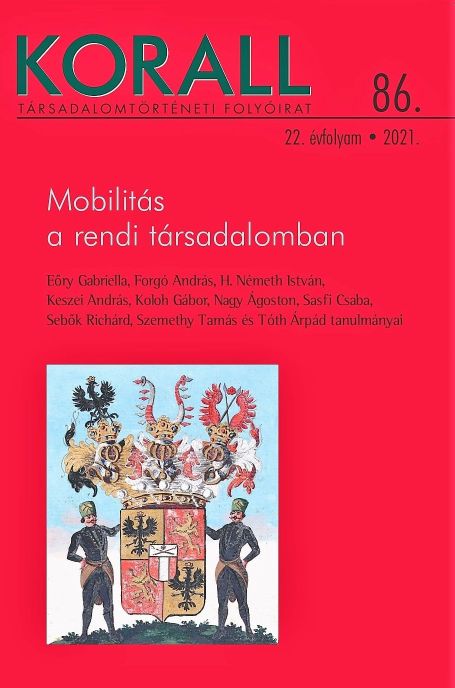Inszurrekció és társadalmi mobilitás a napóleoni háborúk időszakának Magyarországán
Insurrection and Social Mobility in Hungary in the Age of the Napoleonic Wars
Author(s): Ágoston NagySubject(s): Social history, 19th Century
Published by: KORALL Társadalomtörténeti Egyesület
Keywords: history; noble levy; social mobility; 1809; Napoleonic wars; Veszprém County; military distinctions
Summary/Abstract: In addition to the common soldiers conscripted or recruited from the peasantry, as well as the NCOs and officers of the regular army, the four noble levies (generalis exercitus) during the Revolutionary and Napoleonic Wars engaged a large number of the nobility, i.e. the members of the Hungarian political nation, in military service. The noble levy of 1809 was unusual because the 1808 law mandated the personal involvement of the nobility, which substantiated the estate system and, within that, the national character of the institution of the levy. The actual deployment of the troops mobilised in this way, however, took place for the first and the last time in the fifth coalition war in 1809. Revisiting Zoltán Tóth’s concept of estate norms, the present study uses the example of Veszprém County to demonstrate how personal participation in armed service and subsequent military merits during a noble levy could become the means of social mobility for both the nobility and those below the estate line. The examination of the election of the officers in Veszprém County is followed by that of various forms of rewards after the war, including the renewal of officers in 1810. The sources reveal that after the war both the lord lieutenant of the county and the wider public strove to reward servicemen for their personal military service on a sliding scale based on their position in the estate system and their local prestige.
Journal: Korall - Társadalomtörténeti folyóirat
- Issue Year: 2021
- Issue No: 86
- Page Range: 107-136
- Page Count: 30
- Language: Hungarian

